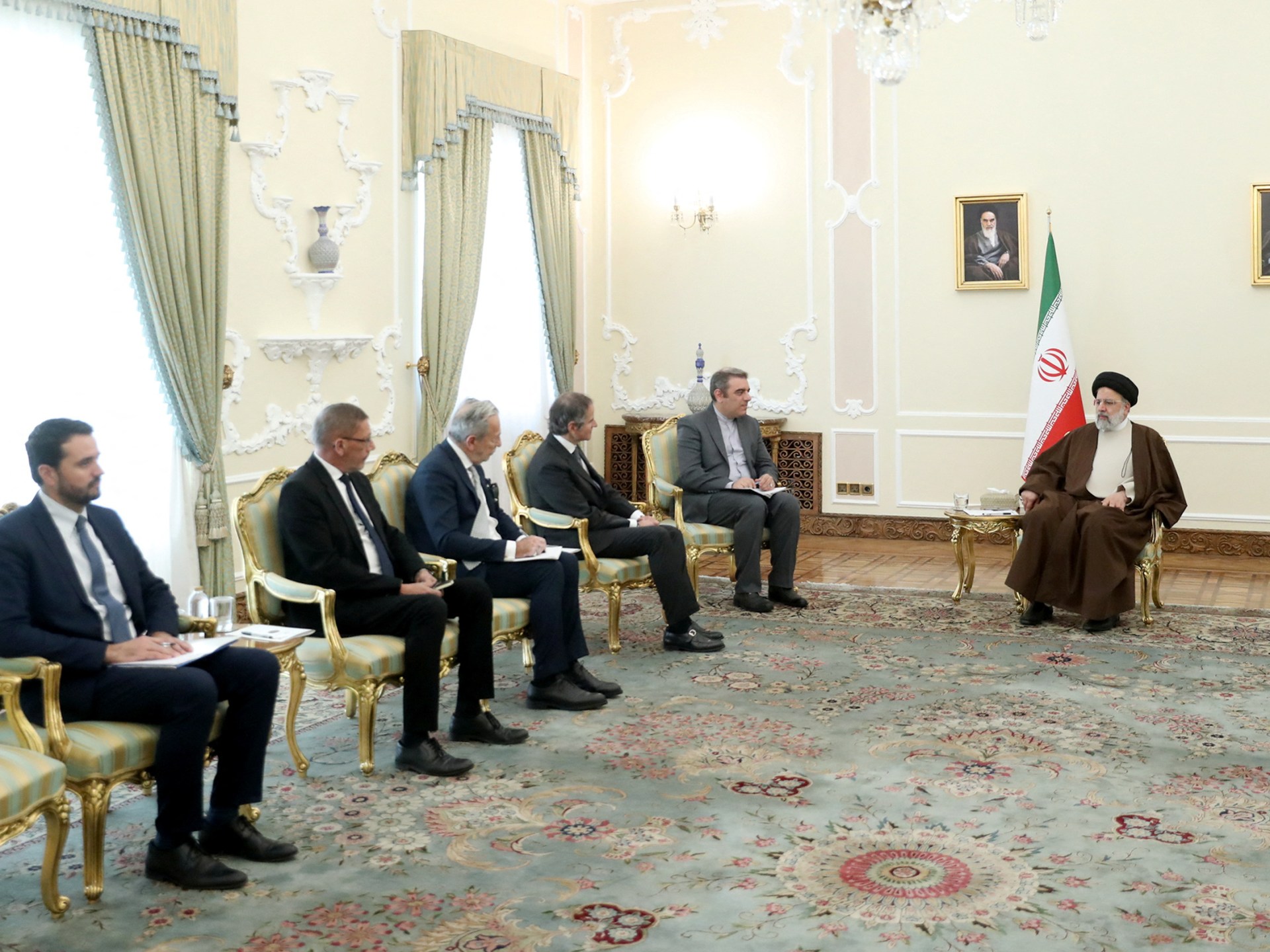Al-Jazeera correspondent - quoting the Iranian presidency - stated that President Ibrahim Raisi informed the Director of the International Atomic Energy Agency, Rafael Grossi, who is on a visit to Tehran, that Iran has a strong will and goodwill to cooperate with the agency.
Raisi also said that Tehran hopes the IAEA will deal professionally and not be affected by political forces that seek special goals, noting that America and the Zionist entity are exploiting Iran's nuclear file as a pretext to put pressure on the Iranian people, as he put it.
In turn, Grossi announced that he had held "constructive discussions" today, Saturday, with Iranian officials in Tehran, which he came to, days after announcing the discovery of enriched uranium particles to a level close to the ratio needed to produce a nuclear bomb.
According to a confidential report by the Atomic Energy Agency, particles of uranium enriched to 83.7%, or just under the 90% needed to produce an atomic bomb, were found at the Fordow underground plant, one hundred kilometers south of Tehran.
Iran, which denies its desire to acquire a nuclear weapon, justified the matter by referring to "involuntary fluctuations" during the enrichment process, stressing at the same time that "it has not made any attempt to enrich beyond 60%."
Reuters quoted a report by the International Atomic Energy Agency that Iran had provided high-level guarantees of cooperation to resolve safeguards issues and to participate in technical discussions, and that Grossi welcomed these guarantees, which would also allow for more monitoring activities.
In a joint statement, the IAEA and Iran's atomic energy agency said Tehran had indicated its willingness to provide more information and resolve safeguards issues, and would allow more appropriate verification and monitoring activities to be carried out.
additional cooperation
Grossi's visit, who arrived on Friday to Tehran and will leave this evening, comes as the agency seeks additional cooperation from Iran on its nuclear activities.
He said - during a joint press conference with the Director of the Atomic Energy Organization of Iran, Mohammad Eslami - "With the constructive talks that we are having now ... I am sure that we will pave the way for important agreements."
Grossi met President Ebrahim Raisi and other officials, and said during the meeting that "cooperation is a two-way street ... and it can continue on the basis of preserving the independence of the agency and the rights of the Iranian people," according to what the political assistant to the head of the Iranian presidential office, Mohammad Jamshidi, announced in a tweet on Twitter.
A diplomatic source in Vienna said earlier that the meeting with Raisi aims to "relaunch the dialogue" on Iran's nuclear activity and "restore relations to their highest levels."
Impasse
Grossi's visit coincides with the negotiations aimed at reviving the agreement on the Iranian nuclear file concluded in 2015, officially known as the Joint Comprehensive Plan of Action, reaching a dead end.
It also comes as US Secretary of Defense Lloyd Austin begins a tour of the Middle East tomorrow, Sunday, including Egypt, Jordan and Israel, during which he will hold talks on the Iranian nuclear program.
In this context, US Assistant Secretary of Defense for the Middle East Dana Stroul said - in an exclusive interview with Al-Jazeera - that diplomacy remains Washington's preferred option for dealing with Iran's nuclear program, which she described as "dangerous," noting that Iran will lead Austin's talks during his tour in the region.
Stroll called on the countries of the region to exert more pressure on Iran to change its behavior, warning of the dangers of the growing military cooperation between Iran and Russia in the Middle East.
Israeli Defense Minister Yoav Gallant also said that he asked his American counterpart to increase measures to prevent Iran from obtaining nuclear weapons.

